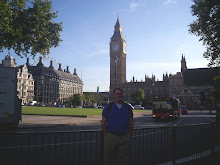However, the opposition of these 4 might provide a a means for strengthening the bill. A new report from the Urban Institute says that a public option with triggers would be better then the public options currently in any of the legislation before Congress. There is also talk in the progressive community about the weaknesses of the public option. The problem with the public option is that it is not tied to medicare rates and it has limited eligibility. With these limitations, the public option could very likely become a dumping ground for uninsurable; which would make the public option more expensive.
A public option with a strong trigger might be able a better bill and might be able to pass the Senate because of the support of Maine's Olympia Snowe and Susan Collins. I also think that a bill that jettisons the public might be a very good bill if it includes increased subsidies and increased access to the insurance exchanges.
There are good reasons to continue to fight for a public option. A successful public option would help liberals make the case that an increased role for government actually helps people's lives, and it would be easier to fix a weak public option then it would to create one at a later date. Those are both good reason to continue to fight for a public option but if those moderate senators are willing to increase subsidies and increase eligibility for the exchanges then I would be willing to make a deal on the public option.


